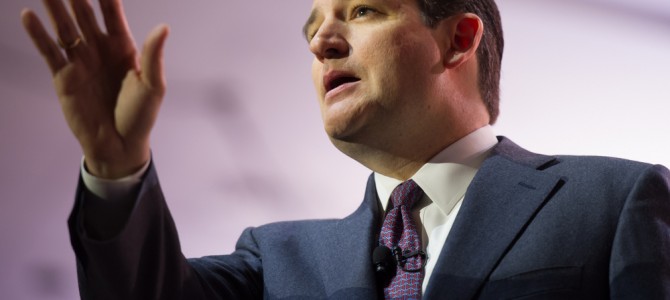Today’s announcement by Sen. Ted Cruz (R-Texas) that he will be a candidate for president in 2016 exposes a fundamental weakness in the conservative movement. Congress, and the Senate especially, has been sapped of its institutional strength and is at risk of being left to rot by a conservative movement more interested in wielding power where progressives have placed it than restoring a proper balance, vociferous paeans to the latter notion notwithstanding.
The Senate has been withering since long before Harry Reid’s do-nothing reign, but his eight years of throttling its deliberations may have finally killed it. And politicians are aware of this.
Despite their lengthy six-year terms, only 22 senators currently serving were elected before 2000, and nearly half are new since 2008. This is not inherently good or bad, but it indicates the allure, or lack thereof, in serving in “the world’s greatest deliberative body.”
The President Has Neutered the Senate
As the recruiters at the National Republican Senatorial Committee and Democratic Senatorial Campaign Committee can attest, more and more the best candidates pass on the “opportunity” to run for a Senate seat. Why should someone campaign for nearly two years and spend millions of dollars for the privilege of being neutered daily?
If you want to pass legislation in the Senate, you likely must get support from the opposition party to secure 60 votes for ending debate on your bill (additional hurdle for Republicans: you must pass the minority party’s bills, no questions asked). AWhen that process inevitably does not yield the result you or the president want, the executive will just do it anyways by fiat or under a unique interpretation of an arcane law already on the books.
Want to have a say in nominations, as the Constitution requires? Better do it quickly, or else the president will deem you out of session and appoint his people anyways.
Well, you still have a say in treaties and foreign policy. Except when the executive branch writes an agreement with a foreign entity that is designed to circumvent you.
Ted Cruz, Stay in the Senate
The public humiliation of the Senate over the last six years has left it devoid of power and with a leadership unable to restore its Constitutional role.
The current leadership in the Senate Republican caucus is why someone of Cruz’s considerable talent is needed there. By leaving the Senate to establishmentarians (Mitch McConnell), former Democrats (Richard Shelby), octogenarians (Chuck Grassley), and incumbents unable to garner majority support in a primary (Thad Cochran, Lamar Alexander), Cruz, Marco Rubio, and Rand Paul are abandoning the urgent work they are in prime positions to carry out, that of restoring the Senate to its proper role.
Cruz could likely hold his seat in perpetuity while remaining a strong advocate for limited government. The powers of incumbency along with the dogged work ethic Cruz showed in his first election would make him a formidable candidate even in the worst of cycles. At age 44, Cruz could easily serve 30 years in the Senate before considering retirement. If Cruz focused on being a conservative foil to Senate institutions like Sen. Pat Leahy (D-Vermont), class of ‘74, or Robert Byrd (D-West Virginia), the longest-serving senator in history, he could play an important role in the resurgence of liberty and a return to Constitutional government.
But the trust and cooperation of colleagues can only be earned if they know you’ll stick around. It is easy to ignore political players whose sunset is on the horizon or who have made it abundantly clear they will not work with you. Just ask President Obama, who spends every day agitating for attention and accolades from his liberal base.
In Cruz’s case, as in Rubio’s and Paul’s, he has had his eyes on 1600 Pennsylvania Avenue since he arrived in Washington. In his legislative pursuits, Cruz has shown himself averse to the tough work of changing the Senate and its Republican caucus from the inside out. Instead he has sought to force obedience by bringing outside pressure to bear on his fellow Republicans on Capitol Hill. His hashtag campaigns (#MakeDClisten) and insistence on an all-or-nothing assault on Obamacare in 2013 as a last-ditch effort to stop it showcase his emphasis on grassroots rabble-rousing over the old-fashioned politicking inherent to a legislative body.
Instead of using his talents to further the conservative cause by restoring a functional Senate that works as a voice of the states instead of special interests for the party in the majority, he has chosen to seek the office currently most antithetical to limited government and constitutional order. His choice is a missed opportunity for conservatives, and we should hope he and his fellow presidential aspirants in the Senate recognize the folly in abandoning that body to its current fate.









